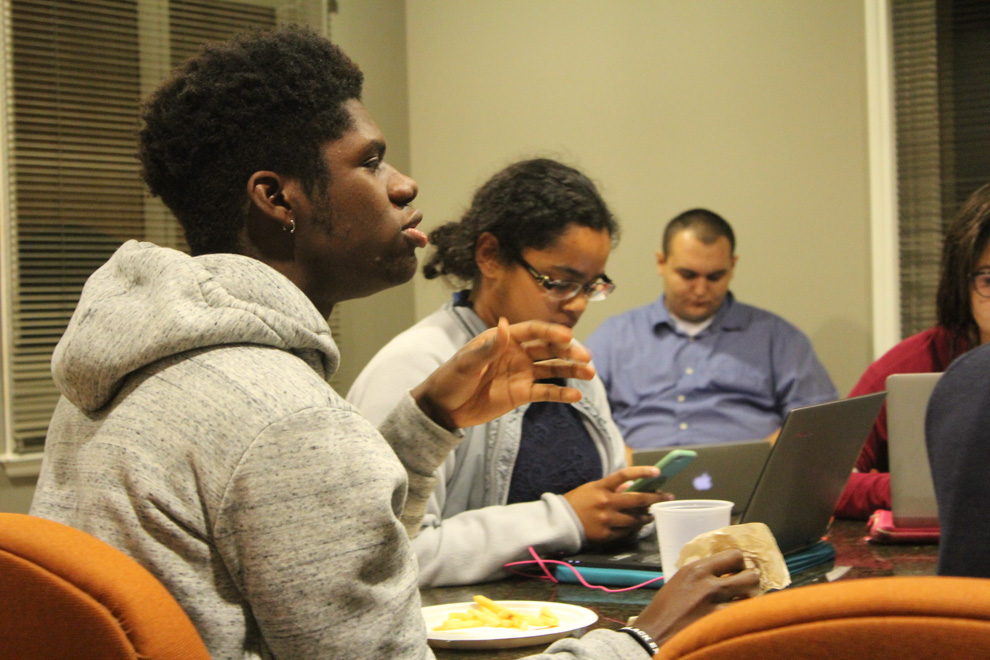During its sixth meeting of the quarter, the 18th Undergraduate Senate discussed plans for a cognitive skill stamp, a new way of accrediting students’ skills that extend beyond the scope of a transcript. The Senate also voiced concerns about budgetary overstretch and confirmed its Elections Commissioner and Assistant Elections Commissioner with the aim of ensuring a fair 2016-2017 election cycle.
Cognitive skill stamps
Last week, academic affairs committee chair Gabe Rosen ’19 met with the Registrar’s Office to discuss the idea of presenting students with cognitive skill stamps in addition to their academic transcripts. He described the stamps as “alternative forms of accreditation for skills that might not be reflected on a transcript.”
The proposed skill stamps can convey qualities such as leadership, activism or facilitation skills on resumes, online forums and social networks. Rosen is currently in discussion to put together a committee comprising of the registrar and prominent faculty members to deliberate on skill stamps, potentially for spring quarter distribution.
Stamps are divided into ones sent on behalf of the University and ones specific to departments or schools within Stanford, called local authority stamps. The committee is to coordinate a skill stamp that will be sent out under the auspices of the undergraduate senate.
“For example, the skill stamp we would come up with would explicitly say ‘Undergraduate Senate’ as an emblem on it, and it would be distributed under Stanford’s authority, but it wouldn’t say ‘Stanford University,’” Rosen clarified.
According to Rosen, the registrar indicated that the proposal was an “unprecedented move” that would allow Stanford students to be more actively involved in their academic accreditation.
Confirmation of commissioners
The Senate confirmed Paul Serrato ’19 and Khaled Jedoui ’20 as Elections Commissioner and Assistant Elections Commissioner, respectively, for the 2016-2017 elections cycle.
Luka Fatuesi ’17, assistant financial manager of Stanford Student Enterprises (SSE), proposed the bill.
“There were some problems with the elections last year,” he said. “We’ve been undertaking an elections reform process, and part of that is getting an elections commissioner in position as soon as possible so he or she can be here to help us all this year.”
Fatuesi characterized the role of the elections commissioner as “providing an overall vision of the elections process” while the assistant commissioner “helps achieve that vision.”
Fatuesi believes that the candidates demonstrated their passion for a fair election process through the application and interview process. He yielded the floor to Serrato, who conveyed his passion for service through political engagement.
“I believe in a fair election process in order to maintain campus values: integrity, inclusivity, community and diversity,” Serrato said.
He encapsulated his mission in three goals: “To maintain and build relationships with all members of the association” by conducting community outreach and communicating with the senate; “to implement a plan to solidify the institutional memory of the election commission”; and to raise voter turnout within undergraduate populations, even among fourth-years and off-campus students.
Tabled bills
The Senate tabled a bill to archive Senate and committee meetings for the public record for next week. In addition, a bill to recognize Indigenous People’s Day in support of Stanford’s Native American community was also tabled pending potential modifications and further feedback from the Graduate Student Council (GSC).
The Senate expressed concerns over tight funding, but advocacy committee chair Jasmin Espinosa ’18 proposed that different quarters have different spending, so the heavy spending this fall could be alleviated by a lighter winter quarter.
Student representatives for Breast Fest, Stanford Pen People, Stanford Outdoor Outreach Program (SOOP) and the Stanford College Republicans were each granted partial funding.
Contact Claudia Heymach at cheymach ‘at’ stanford.edu.
